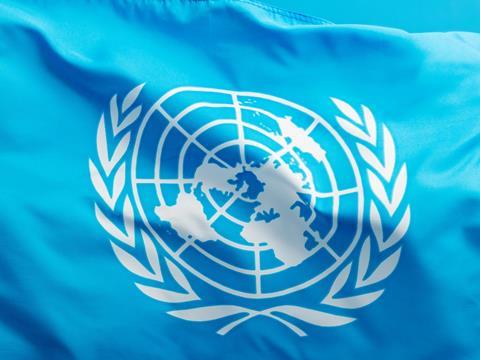
With negotiations surrounding a United Nations treaty on plastic pollutions set to continue in Paris this week, Unilever has laid out its expectations for an upcoming Global Plastics Treaty – including the mandated prevention of plastic leakage, harmonised global regulation, and the wider implementation of EPR schemes.
Intergovernmental Negotiating Committees (INCs) are being held every six months, as agreed at the UN Environmental Assembly (UNEA) in March 2022. Within them, stakeholders in business, science, academia, and civil society present their views on the contents of the treaty and the extent to which it should be legally binding.
Representatives from the informal sector, i.e. local waste collectors and waste pickers, are highlighted as playing a role, with Unilever stating that their role in the global recycling system is often overlooked.
These INCs aim to finalise the draft text of the treaty by the end of 2024 and set it into motion by 2025. Following the first round of negotiations – also known as INC-1 and taking place in Uruguay in November 2022 – INC-2 will discuss the objectives, scope, and implementation of the treaty, developing a ‘zero draft’ to fill the current gaps in legislation and form a basis for future negotiations.
Unilever asserts that the treaty should seek to reduce the production of plastic, end industrial reliance on fossil-based virgin sources, and eliminate plastics that frequently leak into the environment. Any plastics that cannot be phased out should be kept within a circular economy at their highest value, which would apparently be enabled through the development of thorough waste management practices, collection and processing infrastructure, and Extended Producer Responsibility (EPR) schemes.
To achieve this, the company calls for legally binding global targets for all industry players with enough flexibility to account for national circumstances – enabling businesses to invest in long-term solutions. Furthermore, it encourages the creation of harmonised regulatory standards and policies across markets in order to scale up reuse and recycling models across the world.
EPR policies are recommended to hold companies responsible for their plastic packaging at end of life, while design requirements should be paired with targets for scaling reuse models and recycling infrastructure to keep plastics in the loop for longer at their highest value.
“To give ourselves the best chance to end plastic pollution, the treaty must set legally binding global rules and obligations for all countries,” says Ed Shepherd, senior global sustainability manager at Unilever and its lead representative in the Business Coalition. “Ambitious goals to tackle this issue will be meaningless unless we establish the policy measures to deliver them.
“Our hope is that this second round of negotiations will get into the detail, because we need to work at pace if a text is to be agreed by 2025. The options paper published by the United Nations Environment Programme – to be discussed in Paris – is incredibly encouraging and includes many of the elements we’ve been calling for as a Business Coalition, like reduction, circulation and prevention.”
The Business Coalition for a Global Plastics Treaty was founded by the Ellen MacArthur Foundation and WWF last year. Its aim was to unite NGOs, financial institutions, and businesses from across the plastics value chain to work towards “ambitious and effective” legislation that would “form the basis for future policy engagements with governments”.
With an initial total of 83 organisations on board, the number has now raised to over 100 retailers, financial institutions, packaging producers, and waste management companies. Unilever is involved in the coalition’s effort to combat plastic pollution at its root and deliver economic, environmental, and social benefits through the implementation of alternative, less harmful systems.
In an exclusive interview with Packaging Europe, Unilever’s chief research and development officer, Richard Slater, expanded on the company’s stance on the treaty, its decision to get involved, and its points of focus in its ongoing push for legal reform.
Erin Simon, head of plastic waste and business at WWF, also discussed the merits of an international framework – and of considering the entire life cycle of plastics through the scope of sustainability rather than focusing solely on the end point – in light of the ‘historic move’ in which Heads of State, Ministers of Environment, and representatives from 175 nations supported the UN resolution to end plastic pollution.
Packaging Europe also hosted a panel for key stakeholders across the value chain to express their financial, regulatory, and brand perspectives on the Treaty, as well as their opinions on the key points of focus for future legislation.
If you liked this article, you might also enjoy:
McKinsey on whether or not on-pack sustainability claims affect consumer spending
A deep dive into the most important packaging sustainability trends and solutions














No comments yet